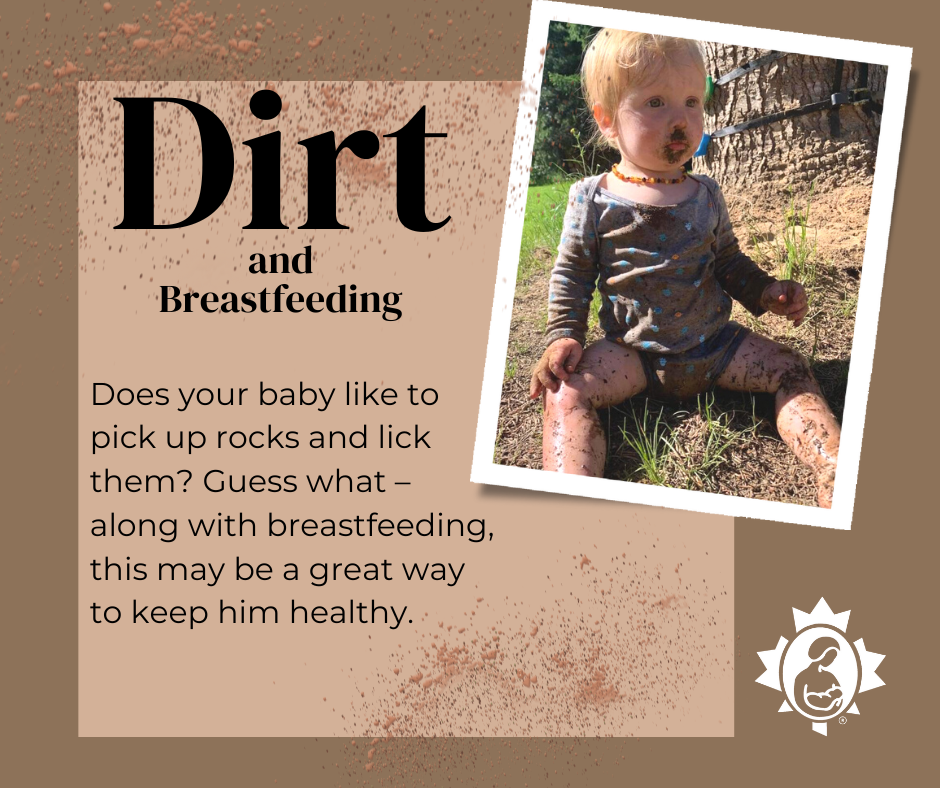
Does your baby like to pick up rocks and lick them? Play in the sand and then stick his fingers in his mouth? Guess what – along with breastfeeding, this may be a great way to keep him healthy.
Breastfeeding and dirt. It’s not a combination you might think of as being ideal for a new baby. But Joseph Lam, a professor of microbiology at the University of Guelph, explains that many people “are almost paranoid about germs – especially parents with a new baby.” And yes, hygiene is important – Lam rates the invention of the toilet and other improvements in public hygiene (including hand-washing) as significant factors in keeping our society healthy.
We need to remember, though, that not all bacteria are bad. In fact, many are essential to our survival. Lam explains: “There are many good bacteria commonly found on our bodies which live in symbiosis with us. They help defend us from other more harmful bacteria, they help us digest our food, and they provide essential nutrients.”
One important benefit of breastfeeding for the new baby, he points out, is that the baby at the breast picks up bacteria from the mother’s skin and in her milk. These bacteria are the desirable ones which will live in the baby’s digestive system and on his skin, helping to keep him healthy. And if the baby does pick up some infectious germs from the dirt, the immune factors in human milk will help him fight off any illness, and other factors will stimulate his system to produce antibodies. That’s a positive step for his long-term health.
If we take steps to kill off all the bacteria – by using antibacterial dishwashing liquids, hand soaps, and mouthwash, for example, or by spraying our home with antibacterial cleansers, Lam says “we are potentially doing more harm than good. These cleansers aren’t necessary, and they increase the risk of creating monsters – dangerous antibiotic-resistant germs.”
So babies in a super-clean environment are not only missing out on the immune-stimulating benefits of harmless bacteria, they are also at risk of not having enough good bacteria to keep them healthy.
In short, Lam’s advice is: “Keep your house reasonably clean, bath the baby regularly, keep breastfeeding – and don’t worry if he drops his toy on the floor and then sticks it in his mouth.”
So if you’d sooner play with your baby than sterilize your kitchen, you are actually making your baby healthier. Who knew that a little dirt could be such a good thing?
Please consider supporting LLLC.
By Teresa Pitman, LLLC Leader, Co-author of The Art of Breastfeeding, 9th edition and Sweet Sleep.
